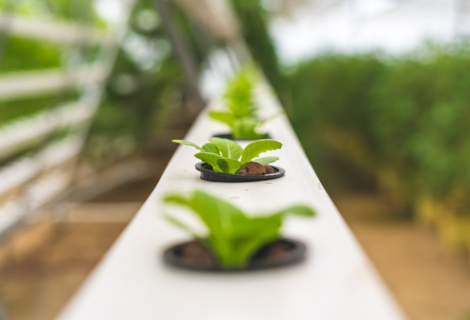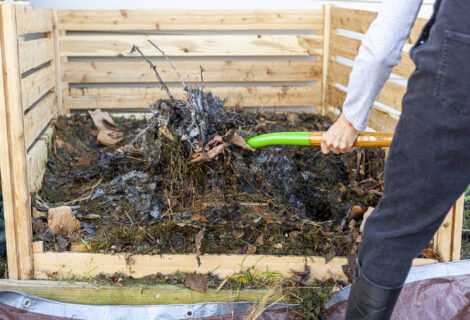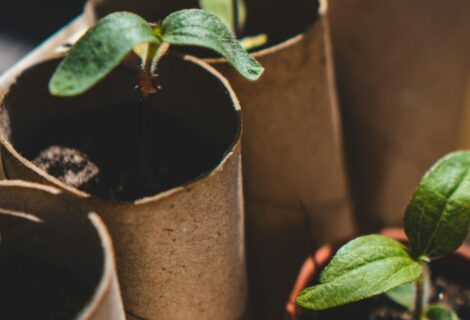Compost is organic matter that has been decomposed and recycled, to then be utilised as a fertilizer for growing plants. There are a lot of advantages associated with using compost. This post explores all of the benefits you will gain if you go for this option. It focuses firstly on the environmental advantages associated with using compost. After all, there is no denying the increased need to look after our environment. All you need to do is turn on the news and you will see reports and talks about the various issues relating to our planet. Well, it is good to know that by simply switching to compost you can do your bit. So, keep on reading to find out more…
First and foremost, one of the most significant environmental advantages is the fact that compost can help to prevent pollution. How is this so? Well, by using compost you are essentially utilising organic materials – these are materials that would have ended up in landfills. Because of this, you stop this process, and you actually help to ensure that the production of leachate and methane formulation in landfills is reduced. This is extremely important. If that wasn’t enough, there are other benefits in relation to preventing pollution. Composting has also been shown to stop turf loss and erosion on the likes of playing fields, hillsides, roadsides and golf courses. It also helps to stop erosion and silting on embankments parallel to rivers, lakes and creeks as well.
In addition to this, compost helps prevent pollution when it comes to protecting our waters. This is because it enhances the soil’s capability to retain water and decreases runoff. This is extremely important because runoff pollutes the water, as it carries pesticides, fertilisers and indeed soil to nearby streams. It does not take much for these benefits to be felt either. In fact, you only need to increase organic material by five per cent and you will actually quadruple the holding capacity of soil. When you put this into perspective, composting has a truly remarkable impact.
Aside from preventing pollution, compost is also beneficial because it aids when it comes to remediation of contaminated soil. There are several ways in which this is the case. Firstly, the process of composting has been shown to degrade and even completely eradicated pesticides, chlorinated hydrocarbons, non-chlorinated hydrocarbons and wood preservatives in contaminated soils. In addition to this, there is also proof to show that composting helps to bind heavy metals and it also stops them from being absorbed by plants or migrating to water resources. If that wasn’t enough, one of the most significant benefits is the fact that the composting procedure absorbs odours and treats volatile and semi volatile organic compounds (VOCs), this includes the likes of explosives, polyaromatic hydrocarbons and heating fuels.
Of course it would not be right to talk about the benefits associated with compost without referring to the enrichment of soil. This is one of the main purposes for using compost for lawn care and garden maintenance in the first place. It helps to regenerate poor soils. How does it do this? Well, the composting process actually encourages the production of useful microorganisms; most notably these microorganisms include fungi and bacteria. The production of these organisms results in the creation of humus through the break down of organic matter. What s humus? This is simply a material that is rich in nutrients and consequently it increases the soils’ amount of nutrient content whilst also helping it to retain moisture. In fact, compost contains the full scope of essential plant nutrients and it releases them slowly i.e. over months or years, which is unlike synthetic fertilisers. It also acts as a buffer by neutralising both alkaline and acid soils. It brings PH levels to the best range for the plants to reap the benefits of optimum nutrient availability.
There are other benefits that occur as a result of the soil being enriched by the use of compost. Because compost enriches soil it also helps to promote higher yields of agricultural crops. Moreover, it can lower or completely eliminate the requirement for chemical fertilisers, whilst also suppressing plant diseases and pests. In fact, enriched soil will also attract a wealth of advantageous insects, including the likes of worms. Why are these creepy crawlies beneficial? Well, they help to keep the soil well aerated, which is important. When you take all of these points into account, it is really not difficult to see why composting is an excellent choice for improving soil and consequently reaping all of the environmental benefits that come along with it.
Nonetheless, whilst the environmental benefits are vast and certainly one of the main reasons for using compost, there are other significant advantages that you should take into account. Aside from improving soil quality and cleaning up contaminated soil, a chief reason for using composting is the fact that it is much more economical. You can make some excellent cost savings by going down this route. This is especially the important when you consider the state of the economy as of late and how all families and businesses are looking to make savings wherever possible. So, how is composting cost efficient? Well, we can start by considering some of the points that have already been mentioned. Take the fact that composting helps to clean up contaminated soil as a prime example. If we did not have compost, we would have to use conventional methods of doing this, which tend to be much more costly. Moreover, the fact that composting helps to prevent pollution also means that by using it you can extend the life of landfills, which also showcases another monetary benefit that arises from the use of compost. Nonetheless, when it comes to saving money for yourself, you will do this because you eliminate the need for the likes of pesticides, fertilisers and water. This can be extremely beneficial in the agricultural industry, yet it can also offer cost savings merely when it comes to looking after your garden.
To conclude, when it comes to using compost, it is quite clear to see that the benefits are widespread and can be felt by all. From soil quality to cost savings, isn’t this something we would all like to take advantage of? You will be reaping benefits personally and you will be helping the environment, all the while this does not come at any added expense to you. What’s not to like? The only thing you need to do now is get your hands on some compost. If you take a look online you will see that there are lots of great companies to purchase compost from. This makes life a lot easier for you, as you can have it delivered directly to your front door! Nonetheless, it is important to select a retailer with care. Make sure you go for someone with a good reputation in the industry. Assess their prices to ensure they don’t charge too much, or indeed too little, as you don’t want to suffer from a lack of quality. If you follow these basic steps then you are ensured to start reaping all of the incredible benefits associated with compost in literally no time!










